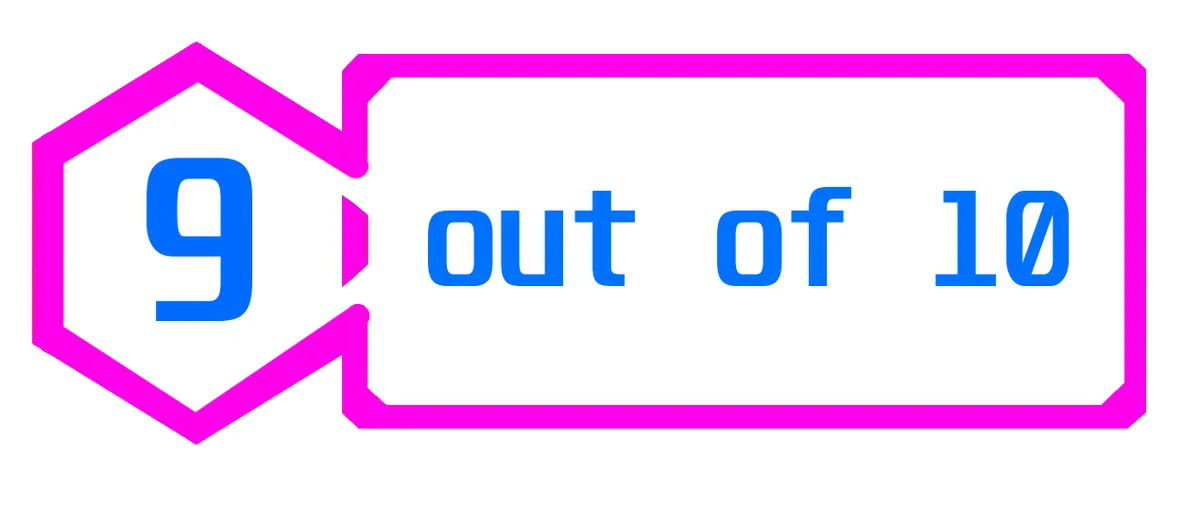Lost Records: Bloom & Rage Tape 1 REVIEW - you'll fit in well
Rhianne Ward
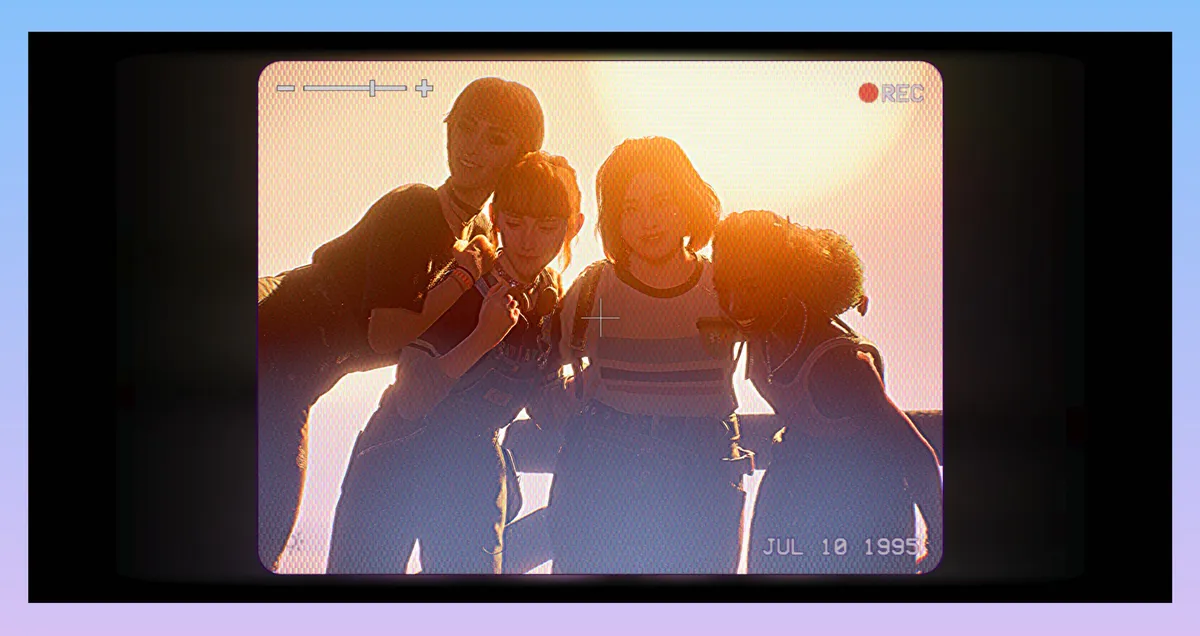
“Not every story needs a happy ending. Sometimes it's… more complicated.”
Those are some of the first words spoken by the protagonist of Lost Records: Bloom & Rage, Swann. It seems to set this story up for a tragic downfall. What form that will take remains to be seen at that point in the game, but the seed is planted. Sometimes, things don't work out.
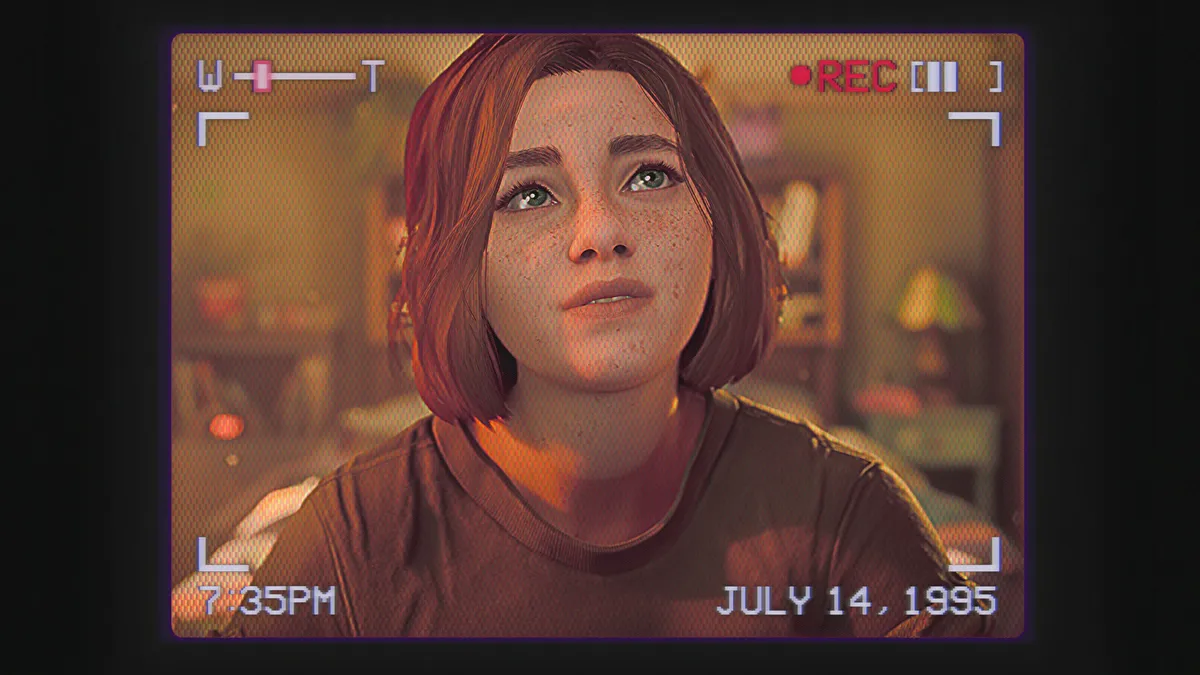
It's made even more interesting by the fact that, statistically, you will likely never hear those words in the first place. It comes as a response to Swann’s mother talking about an argument she had with her friend about the ending of a book, where she argued that it would have been better if it had ended with the main characters getting married. A traditional happy ending. A safe, harmless ending. Soft, saccharine, unchallenging. You get to decide if you voice disagreement to the idea that endings ought to be happy, or simply shift the subject over to the friend's rudeness. Either way, the idea lingers.
Lost Records: Bloom & Rage tells the story of Swann, an awkward 16-year-old teenager living in a small town in the United States of America, 1995. She's a loner, but manages to stumble into a small group of close-knit friends who write music, curse constantly, and generally goof off across the span of their summer break. They are the quintessential gay friend group, a realm I know very well from my own high school years, captured here beautifully. Their hijinks lead them into a strange, supernatural mystery that encompasses their lives; a dark secret none of them can explain to another soul.
The game has two narratives running simultaneously: one is that aforementioned Summer of ‘95, but the other depicts the same characters in 2022, 27 years later, meeting up again for the first time in all those years. What summons them is a package delivered to one of the girls, Autumn, referencing their old band, Bloom and Rage, which only they and a handful of others could possibly know about. The box ominously reads, “remember 1995?” The story jumps between that year and the present day with regularity, each time revealing more about what really happened and why the gang split up in the end. The opening mystery is a compelling one, but it requires looking back into their pasts and uncovering clues that could lead to the truth.
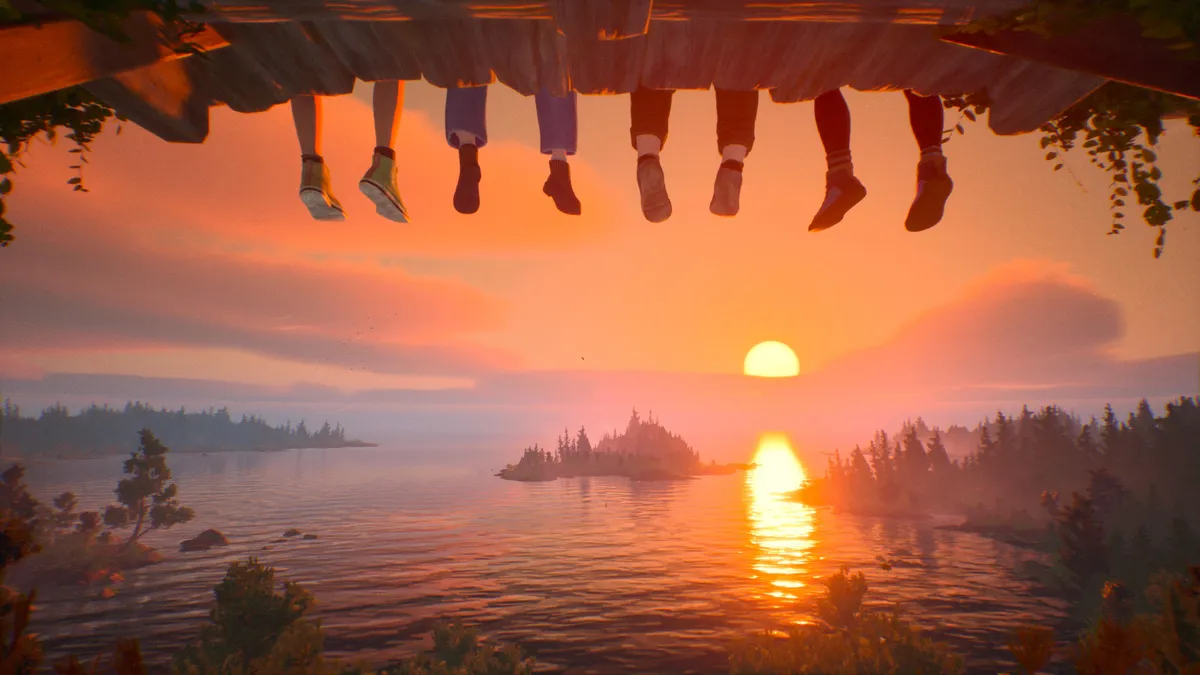
This is a game all about indulging in the sweet nectar of nostalgia, and the pain of reality intruding on those fond memories. Real life, after all, is often cruel and unfair for unknowable reasons. We find comforts where we can – in family, friends, or a brighter past. However, what happens when the past, this safe place you keep boxed and shelved away, is cracked open at your lowest point, and the contents are noticeably muted and filled with unusual details you sanded off years ago.
In Lost Records, you spend a lot of time recording your surroundings with a video camera, all contributing to Swann’s magnus opus, a memoir about her time living in Velvet Cove. You'll capture all sorts of oddities, like local graffiti, birds, critters, and so on and so forth, and all your footage is saved onto a menu and gets compiled into themed edits. It's a really great mechanic that made my playthrough feel deeply personalised in a way that goes beyond the choices-matter format.
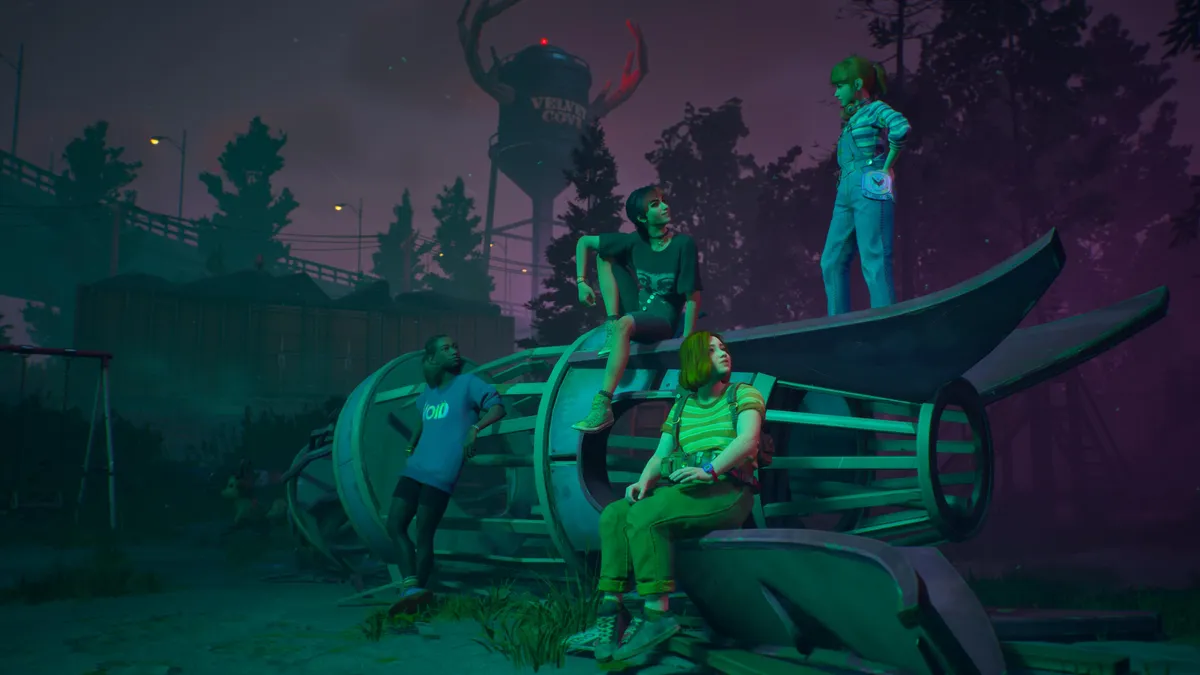
Considering the framing device at play in Lost Records, a mechanic like that is important, since there isn't much room to change the overarching story in particularly meaningful ways. The big plot beats are broadly concrete, and while there are choices sprinkled in here and there, they are inconsequential to the broader picture. It is a story about looking back and uncovering forgotten memories, so naturally not much can really change.
However, I don't think the game ever tries to pretend it's doing that either. Lost Records encourages you to take your time and linger on the specifics. What clothes did Swann wear on the day she met her new friends? Did she spend a not insignificant amount of time recording her favourite movie rental store before interacting with the girls at the ice cream stand? Who did she find herself drawn to in the early hours: Nora, Autumn, or Kat? If you're the type to get hung up on the mechanics of a thing, then these decisions don't exactly matter to the story, but they mean everything for the experience of playing Lost Records. Where you invest your attention and efforts in this game feels special because it involved me in the world in an organic way. Are a lot of the moments that felt reactive and unique actually just deliberately orchestrated by the game to elicit that emotion from me? Maybe, but I think the fact that I could basically never tell the difference speaks to the fact that developer Don't Nod killed it here.
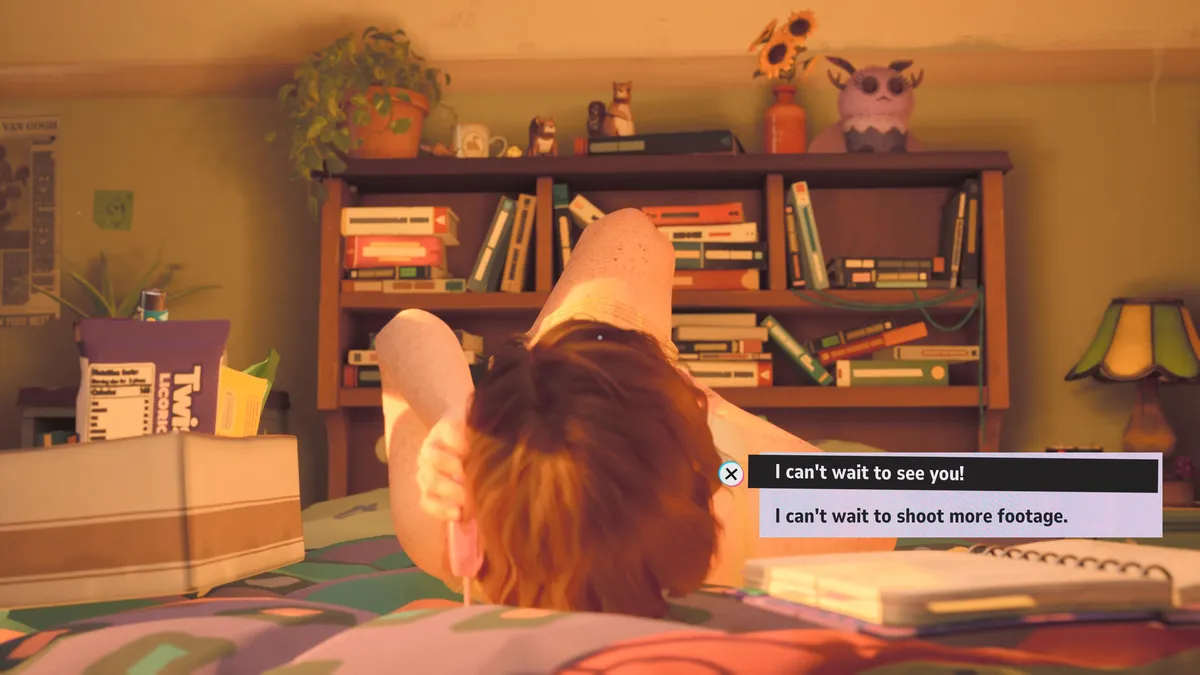
Authenticity is the name of the game here. If the characters and the world don't feel believable, then the whole thing falls apart. Lost Records succeeds in this by crafting a group of deeply cringe tryhard teenage girls who are desperate to impress each other. They are all so beautifully awkward, but also seemingly aware of each others’ awkwardness, so they gas each other up, and that's just such a wonderful dynamic for a supportive friend group. Not to mention, the main performances are incredible, and the chemistry between the cast is great. It's honestly a little disturbing in how true to life the depiction is.
Much like the main quartet, I also grew up as a teenager so deep in the closet that I had convinced myself of the lie. My friends were all at varying stages of that process, and without the solidarity I eventually found in them, I don't know if I would have ever come to terms with my identity. There's a genuine magic to the way that queer kids will befriend each other in high school. It's basically a rite of passage for many queer people, and yet it's a reality that remains basically untouched by the medium of video games. The closest in vibes I think a game has come to this is the Persona series, which is hilarious considering how homophobic those games tend to be.
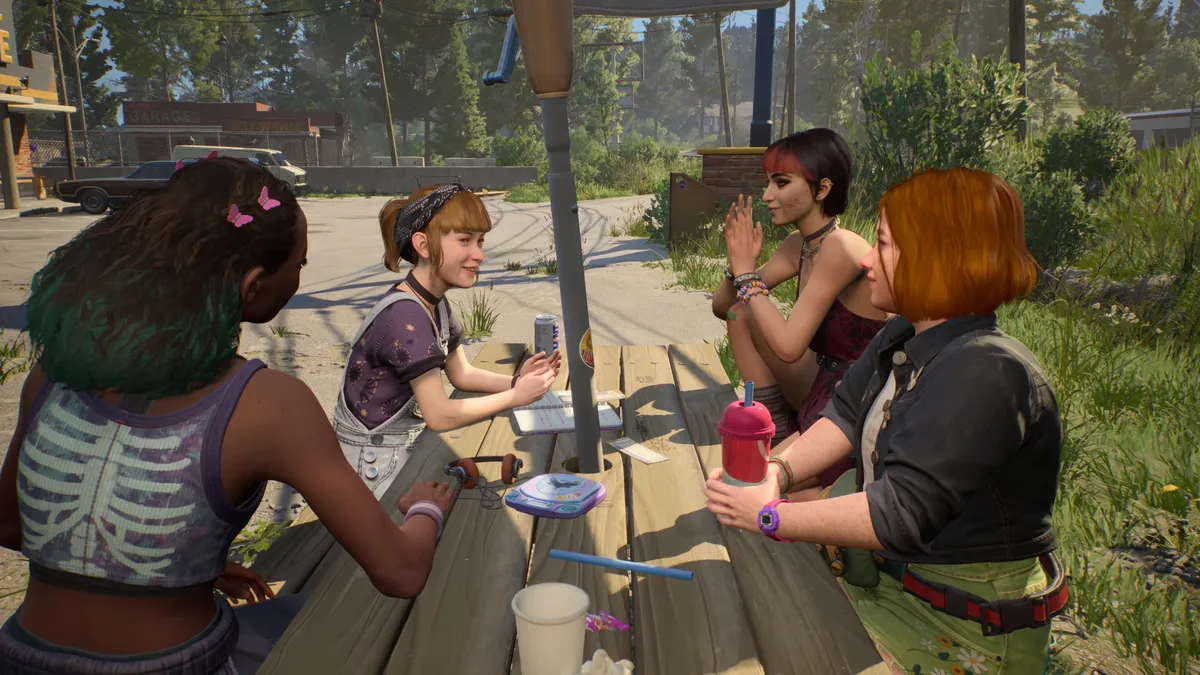
Lost Records captures it beautifully. Outcasts, decidedly the uncool kids, finding solace in one another's company. Becoming friends for some reason that eludes them, but one day, it'll all make sense. No matter what, in some form or another, queerness prevails. It's a nice sentiment, especially in turbulent times like these.
I like Lost Records an awful lot. Much like the reminiscing friends of the story, it actually took looking back and remembering my time with the game while writing this review to realise just how much I like it. It is Don't Nod operating at their most confident. The only issue is that the story isn't finished yet. This is only the first half of the game, Tape 1, with Tape 2 slated to release in April. This instalment ends on a harrowing cliffhanger, which won't be resolved for a couple months, and I genuinely don't know if I can take that much anticipation. It remains to be seen if Lost Records sticks the landing with its story, but even if it doesn't, I find it to be such an incredible triumph in so many other ways. It's special to me regardless.
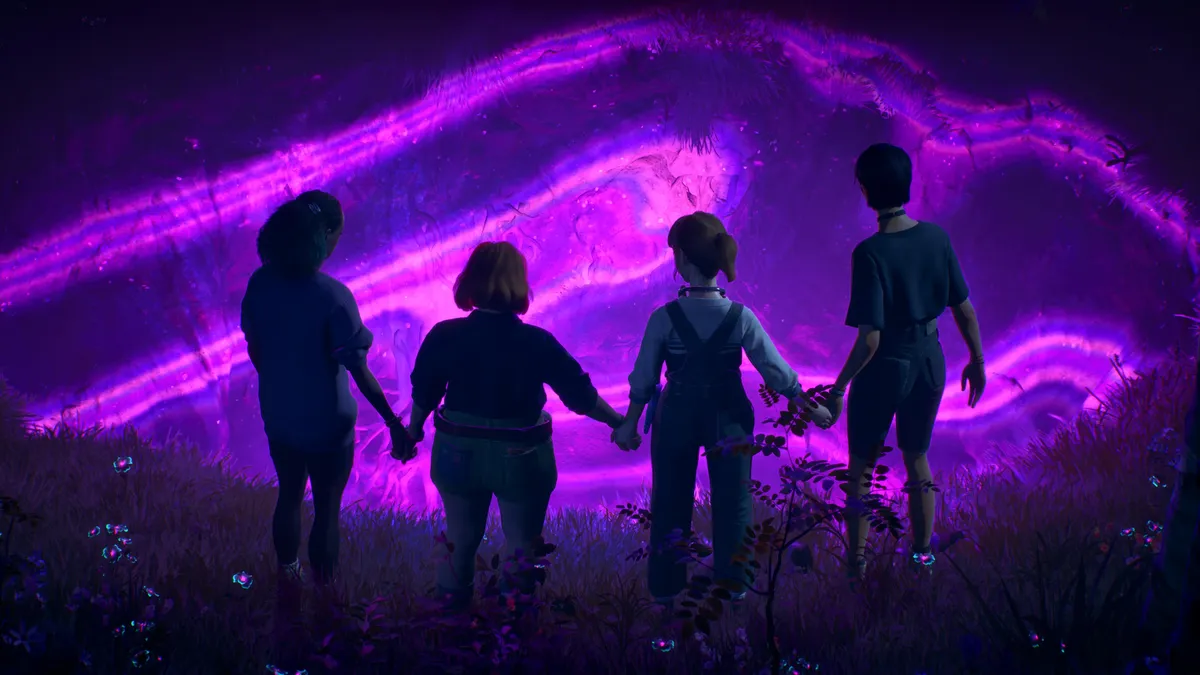
Besides, even if Tape 2 is disappointing, there would be something poetic about that, no? If that's the case, no amount of bad times will erase my fond memories of what came before. It might not end up being a happy ending, but this half of a game meant something to me, and no matter what, I'll always have that.
